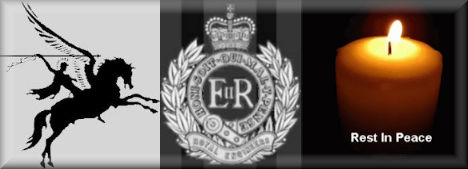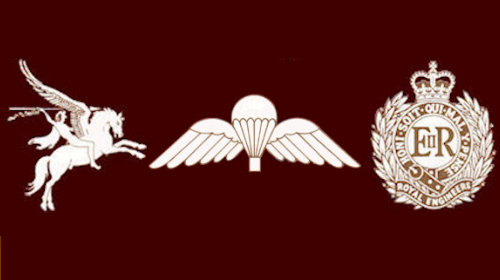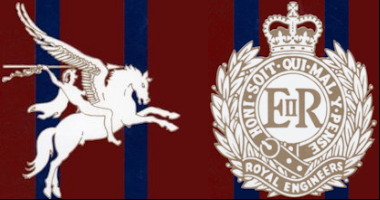
Roll of Honour
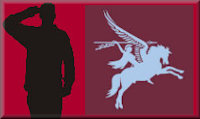
Eric Booth 1st Para Sqn RE - A Personal Tribute by Peter Stainforth
Eric passed away on the 31st July 2011
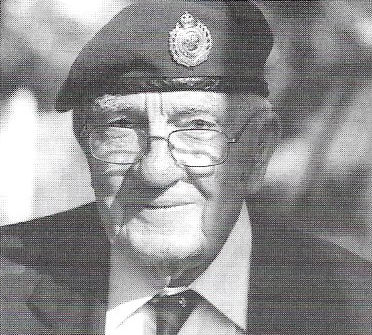 |
Sapper Eric Booth joined A Troop of the 1st Parachute Squadron R.E. at the beginning of 1943, and spent the next three months continuously in action in the wet and cold in the mountains of Northern Tunisia. The end of 1942 had been a very bad year for the squadron. In the middle of December the Squadron's Commanding Officer had been ambushed and killed whilst on a reconnaissance mission, while a few weeks earlier A Troop had lost three officers and half its strength in a catastrophic night battle from which there were no survivors. Nevertheless the enthusiasm and cheerfulness of Eric and the new arrivals quickly dispelled the pervading gloom, and once more A Troop (the original Air Troop R.E.) resumed its status as the Squadron's senior fighting unit.
|
Eric took part with A Troop and 1 Para in the storming of the huge mountain feature, Djebel Mansour, and the fighting withdrawal that followed. Almost immediately he was in action again when the Germans launched a counter-offensive, which was finally stopped, when A Troop, fighting on its own as infantry, retook a hill taking prisoners and capturing a machine gun. No sooner had this front been stabilised than the German offensive was switched to the far north and threatened to break through our thinly held line. Immediately the whole brigade was rushed to the Djebel Abiod region, and A Troop was at once fighting alongside! Para, this time against a very professional German parachute regiment supported by tanks, artillery and Stuka dive-bombers.
After three weeks continuous fighting in pouring rain, the brigade had to withdraw from some of its exposed positions, during which 2 Para and most of the Squadron had to pull out under heavy artillery bombardment and take to a fast-flowing river, wading for about a mile in icy water, sometime up to their waists, using the high banks as cover. I mention this incident because it illustrated how closely the Squadron had become embedded with the three infantry battalions. Frequently engineer officers commanded infantry platoons; even one of our subalterns taking over the command of 2 Para's B Coy in a successful night attack; while on several occasions engineer sections were tacked on to a weakened infantry company to strengthen the line against the furious German onslaught. In all these actions Eric displayed his outstanding qualities of steadiness and bravery in battle.
In a unit composed entirely of brave, loyal and enthusiastic young men, it is hard to stand out above the rest. But if you wanted a difficult job performed well, you asked Eric, particularly when battle roared all around. And so it was at Arnhem, when 40 men of A and B Troops defended the isolated school at the northern end of the huge road bridge for three days and nights, until blasted out of the burning building by King Tiger tanks. Eric's secondary tasks had been to keep contact with the men distributed among the rooms of the school, and make a careful record of the casualties and their status of ammunition, food and water. It is entirely due to him that we know who did what, where and when during that heroic defence.
Sadly the squadron was entirely wiped out at Arnhem, the survivors, mostly wounded, going into captivity for the last six months of the war. Being a small unit fighting on detachment far away from its parent, the Airborne Division Engineer Battalion, our activities mostly passed unnoticed and unrecognised. During the Tunisian campaign, for example, our CRE took no interest at all in our performance or welfare, and when it came to the distribution of decorations, the part played by the squadron in the 1st Brigade's battles was shamefully ignored. All ranks deserved far better than that, especially as it fell to the legendary 2 Para's Colonel Johnny Frost to place on record his opinion that 'the Sappers were the best infantry he ever commanded'.
At the end of the war in the early nineteen-fifties, Eric and four other veterans of the First Squadron who had married local girls in the Donington area began an informal get-together based on the large Reception Room in the Red Cow Inn and The Peacock pub over the way. The idea caught on and expanded rapidly into a formal Dinner, Dance and Church Parade weekend, which needed Eric's organisational skills to weld into a proper club, to which he, as Honorary Secretary and Treasurer, and his lovely wife, Nina, devoted their leisure hours for over fifty years. Veterans who returned year after year from all over the world found that not only were their wartime friendships strengthened, but they were spiritually uplifted and better able to face the debilitating process of old age and whatever the future held. Widows were comforted, sons and daughters filled with admiration, and grandchildren inspired by the old boys' tales of yesteryear. For over fifty years Eric's management of our unique First Squadron Club has been beyond all praise and will not be forgotten.
Eric, a fine God-fearing man, who earned the affectionate nickname of 'General' after the founder of the Salvation Army, General Booth, has indeed been 'promoted to Glory' as the dear old Sally Ann used to say on the death of one of their members. I prefer the analogy of the passing of Mr. Standfast, John Bunyan's hero in 'Pilgrims Progress', who, on entering the dark river, 'all the trumpets sounded for him on the other side'.
